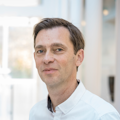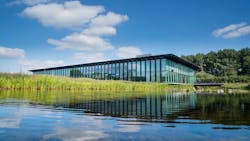Water industry experts need to keep innovating, but also step forward and integrate better with other significant sectors to unlock the circular economy. Fortunately, a number of water companies are doing just that: learning to solve problems in new areas of business for new customers, and the benefits can be felt by everyone.
To unlock the potential of the circular economy, this innovation must go hand-in-hand with excellent engagement with all stakeholders, including that most important stakeholder, the public. This needs to be backed up with support in the economy and effective governance across nations and sectors. If you like a challenge, this is an excellent sector to be in.
The Need For Integration
We are driven forward by the world around us, and in recent times by the challenges of climate change. This is such a deep crisis and has such a tremendous impact on the water sector that it’s in our own interest to contribute to adaptation and mitigation, working across different industries and sharing expertise.
We are also learning that greater trust can be achieved between the water sector and the public through consultation, and greater trust can, in turn, help our scientists to excel.
Can we make these advancements across sectors, achieve Sustainable Development Goals and create this circular economy by 2030? Let’s aim high.
Across Europe, we see excellent examples related to water reuse, use of alternative water and energy sources, recovery of energy like biogas and heat, and the recovery of nutrients from wastewater. The next step would be to connect the sustainability of the water sector to other sectors for which water and its resources can be an essential enabler, thus stimulating development.
The Water Sector Can Think Differently
A clear example of responding well to demand from other sectors can be seen in the Westland region of the Netherlands. Here, rainwater is harvested and reused in the greenhouse horticulture industry, thermal energy is stored in aquifers, and gray water is recycled in urban areas. Advanced purification, biogas production and resource recovery are practiced in several wastewater treatment plants, and recovered materials are brokered to end-users through an innovative nationwide business model by the company, AquaMinerals.
It’s important to note that this project looked for market needs as a starting point. Previously, organizations would extract resources from water and then look for opportunities to sell the product. Instead, AquaMinerals found out which resources were needed first, in effect defining the demand before providing the supply. As a result, resources are recovered from water utilities’ treatment plants to the specifications needed.
It’s a different way of thinking.
Specialized and Integrated Knowledge
Our team at KWR is very excited to be coordinating the NextGen project, a significant strand of the European Union’s Water in the Context of the Circular Economy program. We are able to offer specialized but also integrated knowledge across different areas, including health risks and governance arrangements.
We are two years into the four-year H2020 project, which brings together a partnership of 30 organizations to demonstrate technological, business and governance solutions for water in the circular economy.
NextGen is piloting 10 full-scale demonstration cases in eight E.U. member states to define the next generation of water systems and solutions across the sectors for water (alternative water sources, reuse of wastewater), energy (treatment plants as energy factories, water-enabled heat transfer, storage and recovery), and materials (nutrient mining and reuse, manufacturing new products from waste streams).
Projects include an ex-United Kingdom airfield where people will live and work sustainably, a Dutch brewery site designed with water-based urban circularity in mind, and a project that tackles water scarcity in Spain.
In terms of all-round benefit, a sewer mining project in Athens, Greece, is also highly exciting. The city needs more green spaces, and the Athens Urban Tree Nursery is on a sewer line from which wastewater can be extracted, treated and used for irrigation at the point of demand.
Today, water is being extracted for irrigation purposes, while biosolids are saved for composting. The scheme also takes away the demand from the centralized treatment plant later in the process.
Communication and Involvement of Stakeholders
All the projects above involve a critical stakeholder: the public. In the Swedish project example, the island of Gotland has experienced a severe water crisis, damaging tourism and small-scale industries. Here they are looking at options for rainwater harvesting from drainage ditches, construction of groundwater dams, and wastewater reuse.
They have had an exceptionally long and positive stakeholder engagement, including talking with the residents and farmers, and staging regular meetings where more than 100 people show up. The project relies on public engagement while demonstrating the passion of the local community to make it work.
Secondly, we don’t do this by ourselves. We have close partnerships and relationships with other water research institutes and organizations across Europe. We have experience in coordinating such projects thanks to our long-term experience with managing the joint research program for Dutch water utilities.
Now, the knowledge has moved on over the last 15 years to new specializations which cover all elements of water and the circular economy. At the same time, our experience in managing these joint research programs helps us in coordinating these complex European initiatives.
Throughout the NextGen project, we have needed to be flexible as conditions across Europe can be quite different, though collaboration is both rewarding and essential. Obviously, we have experienced problems in the business environment due to the COVID-19 pandemic. In Romania, for example, a number of our colleagues struggled to gain steady internet access at home. And in Spain, some of our colleagues became seriously ill with the virus.
Public Trust is Vital
While, personally, I am frustrated at how markets and economics can hold up progress toward green recovery, I am excited to see how involving the public might speed up highly positive change.
Our colleagues from Cranfield University (partners in NextGen) carried out a large-scale survey on public acceptance, in the U.K., Spain and the Netherlands. This survey confirmed that in principle, two-thirds to three-quarters of respondents had ‘positive’ to ‘very positive’ feelings around using drinking water created from wastewater and eating food produced with nutrients recovered from wastewater.
People tend to think that the public is not in favor of such initiatives because of the yuck-factor, and this is seen as a significant obstacle in reuse initiatives. But it is not necessarily the case. It depends on how you organize these initiatives, and we already reuse these resources de facto. If you have a treatment facility for wastewater and discharge to the river, then 100 meters further upstream, you collect and treat it to meet drinking water requirements. The only difference is the river is taken out of the equation.
If people understand this, their attitudes change and then what becomes most important is not the yuck-factor, it’s the level of trust they have in the organizations and governmental agencies who monitor and control the process. If trust is positive, then people are much more willing to accept a new idea.
Regulations That Are Safe but Encouraging
To take this direction, there needs to be a regulatory framework to promote safety and security, to create public confidence and trust. But at the same time, these should not be so strict that it halts the initiative. NextGen is talking to projects such as SMART-Plant, HYDROUSA, Project O, Project Ultimate, and some of NextGen’s Watershare partners to discuss this governance challenge. Overall, we need to find a balance between safety and trust and inspiring initiative.
This discussion and other innovations will be an essential part of a final product of NextGen, which is creating a roadmap for the water sector in the E.U. for how to move toward the circular economy.
Meanwhile, the progress of our 10 demonstration projects will break new ground while encouraging innovation through our associated partners in China, India and South Korea.
I’m convinced that all this great work will provide reasonable steps toward our circular economy goals.
While I am not optimistic that this will be done in 10 years, I am sure the projects referenced above are positive examples that there is significant progress being made in the role of water in a circular economy. If we are to at least get closer to the 2030 goal, then knowledge sharing from these successes, across sectors, will be pivotal. WW
About the Author: Jos Frijns is resilience management & governance team leader at KWR.
About the Author

Jos Frijns
Jos Frijns is Resilience Management & Governance team leader at KWR.

